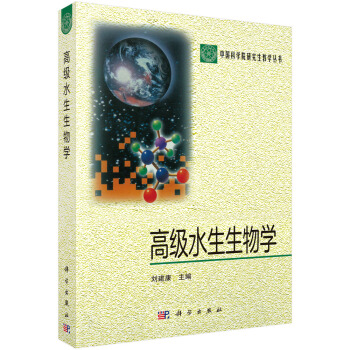![妇产科学(英文原版改编版留学生与双语教学用) [Obstetrics and Gynecology]](https://pic.windowsfront.com/12154654/58d8b04dN1d00982d.jpg)

具体描述
编辑推荐
正版原版,原汁原味,留学生与双语教学用。内容简介
本书系统地介绍了妇产科学的基本知识,包括妇产科的解剖、生理、孕产期保健、产科常见并发症和合并症及各种妇科疾病的诊断与治疗等。内容简明易懂,图文并茂,适合作为临床医学专业本科生中英文双语教学、留学生英文教学、硕士研究生和博士研究生教学的妇产科学教材。本书也可以作为其他医学相关专业学生和青年医生学习妇产科学的参考教材。作者简介
薛凤霞,天津医科大学总医院妇产科行政主任,教授,博导。中华医学会妇产科分会常委,中华妇产科杂志编委,从事国际学院、7年制教学多年。国家十一五教材《妇产科学》编委,全国高等医药院校教材《妇产科学》五年制、七年制编委。主持国家自然基金等科研项目10余项。获得天津市科技进步奖等多项奖项。内页插图
目录
Section One Basic Sciences in Obstetrics and Gynecology1 Anatomy… ……………………………………………………………………………………………………… 3
2 Reproductive Physiology………………………………………………………………………………………… 33
3 Conception, Fertilization and Implantation… …………………………………………………………………… 51
4 Fetal Growth, Placenta and Umbilical Cord……………………………………………………………………… 62
5 Embryology… …………………………………………………………………………………………………… 78
Section Two Gynecology
6 Gynecological History and Clinical Examination………………………………………………………………… 91
7 Pediatric and Adolescent Gynecology… ………………………………………………………………………… 96
8 Gynecological Infection and STD………………………………………………………………………………… 105
9 Amenorrhea… …………………………………………………………………………………………………… 139
10 Abnormal Uterine Bleeding… ………………………………………………………………………………… 148
11 Infertility………………………………………………………………………………………………………… 158
12 Polycystic Ovarian Syndrome (PCOS)… ……………………………………………………………………… 174
13 Hirsutism………………………………………………………………………………………………………… 180
14 Menopause……………………………………………………………………………………………………… 184
15 Benign Lesions of the Vulva and Vagina………………………………………………………………………… 192
16 Benign Disorders of the Uterine Cervix………………………………………………………………………… 202
17 Benign Disorders of Uterine Corpus (Fibroids, Adenomyosis and Endometrial Polyp) ………………………… 206
18 Benign Adnexal Masses… ……………………………………………………………………………………… 222
19 Premalignant and Malignant Disorders of the Vulva and Vagina… …………………………………………… 234
20 Premalignant and Malignant Disorders of the Uterine Cervix… ……………………………………………… 244
21 Premalignant and Malignant Disorders of the Uterine Corpus… ……………………………………………… 267
22 Premalignant and Malignant Disorders of Ovaries and Fallopian Tubes………………………………………… 278
23 Gestational Trophoblastic Diseases……………………………………………………………………………… 291
24 Endometriosis…………………………………………………………………………………………………… 299
25 Pelvic Organ Prolapse (POP)…………………………………………………………………………………… 309
26 Urinary Incontinence…………………………………………………………………………………………… 321
27 Genital Ambiguity and Intersexuality…………………………………………………………………………… 333
28 Contraception…………………………………………………………………………………………………… 341
Section Three Obstetrics
29 Preconceptional Counseling, Physiological Changes in Pregnancy and Antenatal Care………………………… 365
XIV
Contents
30 Normal Labor…………………………………………………………………………………………………… 393
31 First Trimester Vaginal Bleeding………………………………………………………………………………… 415
32 Recurrent Pregnancy Loss and Bad Obstetrical History………………………………………………………… 436
33 Late Pregnancy Complications… ……………………………………………………………………………… 442
34 Third Trimester Bleeding… …………………………………………………………………………………… 464
35 Disproportionate Fetal Growth… ……………………………………………………………………………… 478
36 Multiple Pregnancy……………………………………………………………………………………………… 485
37 Disorders of Amniotic Fluid… ………………………………………………………………………………… 494
38 Special Cases in Obstetrics… …………………………………………………………………………………… 499
39 Hypertensive Disorders in Pregnancy…………………………………………………………………………… 502
40 Diabetes Mellitus and Pregnancy………………………………………………………………………………… 514
41 Hematological Disorders in Pregnancy… ……………………………………………………………………… 521
42 Cardiac Disease in Pregnancy…………………………………………………………………………………… 532
43 Thyroid Dysfunction with Pregnancy…………………………………………………………………………… 539
44 Jaundice, Hepatitis and Gastrointestinal Disorders in Pregnancy………………………………………………… 544
45 Renal Disorders in Pregnancy…………………………………………………………………………………… 551
46 Nervous System Disorders in Pregnancy………………………………………………………………………… 556
47 Asthma in Pregnancy… ………………………………………………………………………………………… 561
48 Local Abnormalities……………………………………………………………………………………………… 565
49 Infection During Pregnancy… ………………………………………………………………………………… 573
50 Malpresentation and Malposition……………………………………………………………………………… 581
51 Dystocia and Cephalopelvic Disproportion……………………………………………………………………… 600
52 Postpartum Hemorrhage………………………………………………………………………………………… 609
53 Puerperium……………………………………………………………………………………………………… 621
54 Essential of Normal Newborn Assessment and Care… ………………………………………………………… 628
55 Special Topics in Obstetrics……………………………………………………………………………………… 636
56 Critical Care Obstetric…………………………………………………………………………………………… 657
Section Four Appendices
Appendix 1 Investigations in Gynecology… ……………………………………………………………………… 667
Appendix 2 Operative Obstetrics…………………………………………………………………………………… 677
Appendix 3 Fetal Medicine………………………………………………………………………………………… 699
Appendix 4 Drug Use in Pregnancy………………………………………………………………………………… 701
Appendix 5 Psychological Aspects in Obstetrics and Gynecology… ……………………………………………… 703
Section Five Annexures
Annexure 1 Medical Eligibility Criteria for Initiation and Continuation of Intrauterine Devices (IUDs)… ……… 711
Annexure 2 Medical Eligibility Criteria for Initiation and Continuation of Combined OCs/Combined Injects/
Transdermal Patches and Vaginal Rings… …………………………………………………………… 714
Annexure 3 Medical Eligibility Criteria for Emergency Contraceptive Pills (ECPs)… …………………………… 717
Annexure 4 Normal Values in Pregnancy… ……………………………………………………………………… 718
Annexure 5 Indications and Risks of Common Vaccines During Pregnancy……………………………………… 720
精彩书摘
Conception, Fertilization3
and Implantation
A baby is God’s opinion that the world should go on.
introdUction
Life begins when an oocyte is fertilized by sperm. The union of egg and sperm at fertilization is one of the most important process in biology.
Gametogenesis is the process involved in the maturation of two highly specialized cells (spermatozoon in male and ovum in the female) before they unite to form zygote.
oogenesis
The process involved in development of mature ovum is called oogenesis. The primitive germ cells take their origin from the yolk sac at about the end
of 3rd week of intrauterine life and their migration
to the developing gonadal ridge is completed round about the end of 4th week. In female gonads the germ cells undergo a number of rapid mitotic divisions and differentiate into Oogonia. The numbers of oogonia are maximum at 20th week, which number about 7 million. While the majority of oogonia continue to
divide, some enter into the prophase of first meiotic
division and are called primary oocytes. Primary oocyte is surrounded by flat cells and is called primordial follicle which are present in the cortex of the ovary. After birth there is no more mitotic division and all oogonia are replaced by the primary oocytes
which have finished the prophase of the first meiotic
division and remain in the resting phase (dictyotene stage) between prophase and metaphase. Total
number of primary oocyte at birth is approximately
2 million.
Maturation of oocyte is reduction of the number of chromosomes to half. Before the onset of first meiotic division, the primary oocyte doubles its DNA by replication, so they have double amount of normal protein content. There are 22 pairs of autosomes which determine the body characteristics and one
pair of sex chromosomes named XX. The first stage of
maturation occurs with full maturation of the ovarian follicle just prior to ovulation. Final maturation occurs only after fertilization.
The primary oocyte undergoes first meiotic division giving rise to secondary oocyte and one polar body. The secondary oocyte contains haploid number of chromosomes (23X) and nearly all the cytoplasm. Small polar body contains half of chromosomes (23X) but only scanty cytoplasm. Ovulation occurs just after the formation of secondary oocytes (Fig. 3.1B).
The secondary oocyte completes the second meiotic division only after fertilization by the sperm in the fallopian tube. It results again in formation of 2 daughter cells. The larger one is called mature ovum containing (23X) and the smaller one is called second polar body containing same number of chromosomes. The first polar body may also undergo the second meiotic division. In the absence of fertilization, the secondary oocyte does not complete the second meiotic division and degenerates as such.
Structure of Mature Ovum
A fully mature ovum is the largest cell in the body
measuring 130 μm in diameter. It consists of cytoplasm
and a nucleus with eccentric nucleolus and contains
23X chromosomes. During fertilization, the nucleus
is converted into a female pronucleus. The ovum is surrounded by a cell membrane called vitelline membrane. There is an outer transparent mucoprotein
Section –1 . Basic Sciences in Obstetrics and Gynecology
envelope called Zona pellucida. In between vitelline membrane and Zona pellucida there is a narrow space called, perivitelline space which accommodates the polar bodies. After escape from primordial follicle, oocyte retains a covering of granulosa cells known as corona radiata, which is derived from cumulus oophorous (refer Figs 2.4A and B).
Spermatogenesis
Spermatogenesis is the production of mature sperm. It occurs in the seminiferous tubules of the testis. The primordial germ cells divide to produce spermatogonia, the precursor of mature sperm. At onset of puberty the spermatogonia located at the basal lamina of the seminiferous tubercle begin to divide mitotically to produce primary spermatocytes.
Primary spermatocytes remain in stage of prophase of the first meiotic division for long time (16 days). Each spermatocytes contains 22 pair of autosomes and one pair of sex chromosomes named XY.With completion of first meiotic division, two secondary spermatocytes are formed having equal share of cytoplasm and haploid number of chromosomes either 23X or 23Y. Immediately after there is a second meiotic division with formation of 4 spermatids, each containing
haploid numbers of chromosomes, two with 23X and two with 23Y (Fig. 3.1A). Spermiogenesis is the differentiation of round spermatids to motile spermatozoa. In this process a series of morphological changes occur which produce motile sperms and takes about 61 days. The most visible change is the reduction in size and formation of tail, which allows the sperm cell to swim. The chromosomes in the sperm cells are almost crystallized by a special set of sperm specific proteins called protamines. In fact this protamine induced condensation of the sperm chromosome is so extensive that the size of sperm nucleus is about one thirtieth of the size of the mature human egg. This compact structure of the sperm is important for its motility.
The production of spermatozoa in the testis requires the presence of germ cells and their transformation and maturation is under the control of hypothalamic and pituitary hormones and testicular androgens.
The Mature Sperm
Spermatozoa are produced at the onset of puberty in boys. Thereafter, the seminiferous tubules of the testis will go on producing sperms daily until 60 years of age and beyond. Following spermatogenesis, the spermatozoa pass through seminiferous tubule to rete testis, on to the vasa differentia, the head of the epididymis and hence, 12 days later to the tail of epididymis. The transport of mature sperm is facilitated via muscular activity within the epididymis
and vas. The seminal fluid is made up from secretion
of bulbourethral gland, seminal vesicle, the prostrate and epidymal fluid. During this time the sperm acquire motility and undergo the final biochemical changes that give them ability to fertilize the ovum.
The sperm has complex structure. It contains haploid number of chromosomes (22 + X or Y). It is few microns long. It has head which consist principally of the condensed nucleus and acrosomal cap. Acrosome is rich in enzyme. Tail gives the motility and propulsion while the mid piece acts as energy source. At the time of intercourse, million of sperms are deposited in vagina (Fig. 3.2). Seminal fluid containing sperm coagulates immediately following ejaculation. Under normal circumstances it liquefies within 20 minutes. The basic pH of the seminal fluid protects the spermatozoa from acidity of vagina. They travel in all directions, some through the cervix, where in midcycle the molecules of cervical mucus untangle their barbed fence like morphology to assume straight lines.
……
用户评价
作为一名致力于提高医学教育质量的教师,我一直在寻找能够帮助学生更有效地掌握妇产科学知识的教材。这本书的面世,为我提供了一个极佳的选择。其改编的理念,将原版教材的精髓与本地化教学需求相结合,是我认为最科学有效的模式。书中对于复杂病理的解释,采用了由浅入深的逻辑,并辅以大量的案例分析,让学生在理解理论的同时,能够掌握实际应用。尤其值得称赞的是,它在章节的结尾处设置了思考题和讨论环节,这能够极大地激发学生的学习兴趣,并鼓励他们进行批判性思维。书中的双语设计,不仅仅是简单的翻译,更是在专业术语的理解和应用上,为学生搭建了一座桥梁,能够帮助他们更好地与国际医学界接轨。我注意到书中对于一些前沿技术和治疗方法的介绍,比如微创手术、辅助生殖技术等,内容都非常及时和权威,这对于培养具有国际视野的医学人才至关重要。这本书在内容组织、图文编排和语言风格上,都体现了高度的专业性和人性化,我相信它将成为我教学中不可或缺的助手。
评分这本书绝对是为正在攻读医学专业,尤其是妇产科领域的留学生量身定制的!我一直在寻找一本能够同时满足我母语阅读需求和深入学习专业知识的书籍,而这本书简直就是完美的解决方案。它巧妙地将英文原版的内容进行了改编,既保留了原版严谨的学术深度,又用更易于理解的语言和排版呈现,让我这个非英语母语的学习者倍感亲切。扉页上的“留学生与双语教学用”几个字,让我立刻觉得这是一本真正懂我需求的书。翻开目录,就能看到从基本的生殖生理到复杂的妇科疾病,再到孕期的各个阶段,以及分娩的整个过程,内容覆盖得极其全面。每一个章节的结构都非常清晰,理论知识的讲解透彻,同时又穿插了大量的临床案例和图表,这对我理解抽象的医学概念起到了至关重要的作用。更让我惊喜的是,它在关键术语的翻译和解释上做得非常到位,很多时候会在英文术语旁边附带简洁易懂的中文解释,或者提供双语对照的专业术语表,这极大地减轻了我在阅读过程中查阅资料的负担,让我能够更专注于知识本身的吸收。这本书的设计考虑到了留学生的学习痛点,真的让我受益匪浅。
评分这本书的出版,对于促进国际医学交流和学习,尤其是在妇产科学领域,无疑具有里程碑式的意义。它不仅仅是一本教材,更是一个连接不同文化和语言的学术平台。我特别欣赏其对原版内容的精炼和改编,使其更符合不同国家留学生的学习习惯和认知特点,既保持了原有的科学严谨性,又降低了理解的门槛。书中对于妇产科常见疾病的发生机制、临床表现、诊断方法以及治疗策略的阐述,都非常系统和全面,涵盖了从基础到临床的各个层面。我注意到书中在介绍某些疾病时,会提及不同国家和地区的流行病学数据和诊疗习惯的差异,这对于留学生理解全球性的医学问题非常有启发。此外,书中对于妇科肿瘤、不孕不育等疑难杂症的探讨,也显示了其内容的深度和广度。我尤其喜欢书中关于生殖健康和优生优育的章节,其科学的理念和实用的建议,对于提升全人类的健康水平具有深远意义。这本书的问世,将极大地促进国际医学教育的多元化和共享化。
评分作为一名多年来一直关注妇产科领域前沿进展的临床医生,我最近偶然翻阅了这本书,并被其深入浅出的讲解方式所折服。这本书在保留了西方妇产科学的精髓的同时,加入了许多符合我们本土实际情况的改编和补充,使得内容更具实践意义。我特别欣赏它在介绍疾病的诊断和治疗时,不仅仅局限于理论,而是提供了多种可行的方案,并详细阐述了各种方案的优缺点、适应症以及潜在的并发症,这种详尽的分析对于临床决策非常有帮助。书中大量的彩色插图和高清的影像资料,生动地展示了各种病理情况和手术过程,让我这个老医生也感觉受益良多。我尤其关注了书中关于围产期保健和高危妊娠管理的章节,作者在这一部分的内容更新非常及时,涵盖了最新的指南和研究成果,这对于指导临床实践,提高母婴健康水平至关重要。此外,书中对一些常见但容易被忽视的妇科小毛病,如盆腔炎、月经不调等,也进行了细致的分析,这对于基层医生来说,是一份宝贵的参考资料。这本书的出版,无疑为国内的妇产科医学教育和临床实践注入了新的活力。
评分我是一名对母婴健康充满好奇心的普通读者,虽然我并非医学专业人士,但我一直对女性的身体和生育过程感到着迷。偶然的机会,我接触到了这本书,虽然我无法完全理解所有的专业术语,但我被它丰富的图片和清晰的逻辑所吸引。书中对于女性生殖系统的介绍,从最初的生理结构到各个年龄段的变化,都描绘得非常细致,让我对女性身体有了更深层次的认识。怀孕期间胎儿的发育过程,每一周的变化都被详细地记录下来,配以精美的插图,让我仿佛能够亲眼见证生命的奇迹。分娩的各个阶段,从阵痛的开始到新生儿的诞生,书中都进行了详细的描述,虽然有些过程听起来有些挑战,但书中传递的母爱的力量和生命的坚韧让我深受感动。这本书不仅仅是一本医学教科书,它更像是一部生命的赞歌,讲述着女性的伟大和生命的延续。我尤其喜欢书中关于产后护理和新生儿喂养的章节,这些内容对于所有即将成为父母或者已经为人父母的人来说,都具有非常实用的价值。它用一种温和而又科学的方式,解答了我心中关于生命起源的诸多疑问。
相关图书
本站所有内容均为互联网搜索引擎提供的公开搜索信息,本站不存储任何数据与内容,任何内容与数据均与本站无关,如有需要请联系相关搜索引擎包括但不限于百度,google,bing,sogou 等,本站所有链接都为正版商品购买链接。
© 2026 windowsfront.com All Rights Reserved. 静流书站 版权所有


![数学与人类文明 [Mathematics Human Civilization] pdf epub mobi 电子书 下载](https://pic.windowsfront.com/12188593/59cb6c47Nacccc17e.jpg)
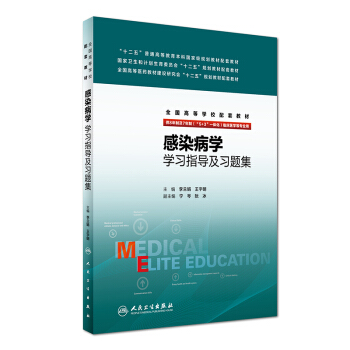
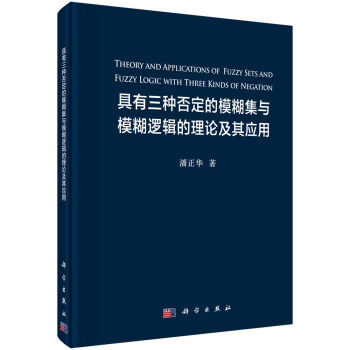

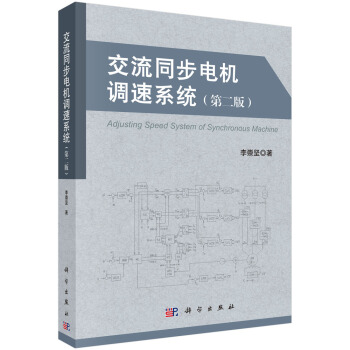



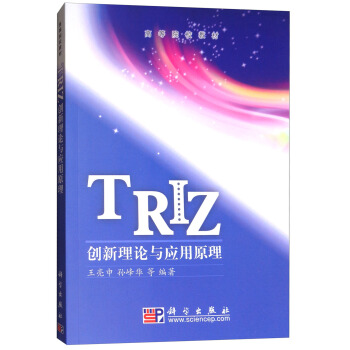







![高级财务管理(第2版)/东北财经大学财务管理专业系列教材 [Advanced Financial Management] pdf epub mobi 电子书 下载](https://pic.windowsfront.com/12323205/5ad06e45N796b9b0e.jpg)
